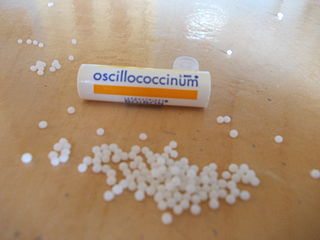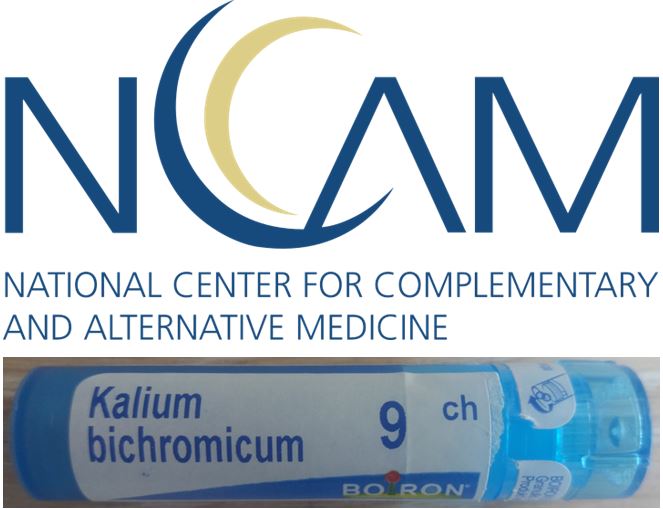Results for: placebo

The CAM Docket: Boiron III, et al.
Despite denying wrongdoing, Boiron was still required to reimburse consumers for their products after losing a consumer fraud lawsuit.
Andrew Weil Flirts with Evidence Based Medicine
Andrew Weil, MD, pops up quite frequently on SBM, most recently in this entry by Harriet Hall, so I will not spend much space introducing him. An excellent biography and critique of Dr. Weil was written by Arnold Relman, former Editor of the New England Journal of Medicine. It is over a decade old, but contemporary to some of the events described...
Support Science-Based Medicine
Next month is the 5 year anniversary of Science-Based Medicine. We have published 1575 articles so far, with 72,400 comments. We are getting about 475,000 views per month, and SBM has attracted the attention of the mainstream media, government agencies, peer-reviewed journals, and even television and movie producers. Over the last five years we have endeavored to be a valuable resource for...
Journal of Clinical Oncology editorial: “Compelling” evidence acupuncture “may be” effective for cancer related fatigue
Journal of Clinical Oncology (JCO) is a high impact journal (JIF > 16) that advertises itself as a “must read” for oncologists. Some cutting edge RCTs evaluating chemo and hormonal therapies have appeared there. But a past blog post gave dramatic examples of pseudoscience and plain nonsense to be found in JCO concerning psychoneuroimmunology (PNI) and, increasingly, integrative medicine and even integrations...
Ecstasy for PTSD: Not Ready for Prime Time
Hundreds of desperate combat veterans with Post-Traumatic Stress Disorder (PTSD) are reportedly seeking experimental treatment with an illegal drug from a husband-wife team in South Carolina. The Bonhoefers recently published a study showing that adding MDMA (ecstasy, the party drug) to psychotherapy was effective in eliminating or greatly reducing the symptoms of refractory PTSD. It was widely covered in the media, for...
Chiropractic “Research” on Tourette Syndrome: The Trouble with Case Reports…..
I can think of few conditions with clinical features more ideal for establishing a pattern of abuse at the hands of practitioners of so-called alternative medicine than Tourette syndrome. Tourette syndrome (TS), which first manifests itself in early childhood in the overwhelming majority of patients, is a neurological disorder with infamous motor and vocal manifestations and a troubled past. Historically the condition...

Bad Pharma: A Manifesto to Fix the Pharmaceutical Industry
“There is no medicine without medicines” write Ben Goldacre in his new book Bad Pharma. To Goldacre, an author, journalist and physician, this cause is personal. The title, a reference to both his first book, Bad Science, as well as the pharmaceutical industry’s nickname Big Pharma, is a bit of a misnomer. While the focus is pharmaceutical companies and their actions, there are...

Getting NCCAM’s money’s worth: Some results of NCCAM-funded studies of homeopathy
As hard as it is to believe, the Science-Based Medicine blog that you’re so eagerly reading is fast approaching its fifth anniversary of existence. The very first post here was a statement of purpose by Steve Novella on January 1, 2008, and my very first post was a somewhat rambling introduction that in retrospect is mildly embarrassing to me. It is what...
Is There a Treatment for Tinnitus
There are several features of a symptom or illness that make it a convenient target for proponents of unconventional therapies. Subjective symptoms are more likely to be targeted than objective conditions – you don’t see many so-called “alternative” birth control treatments. Symptoms for which placebo effects alone are likely to produce the illusion of effectiveness are good targets for ineffective treatments. Symptoms...
“Moneyball,” the 2012 election, and science- and evidence-based medicine
Regular readers of my other blog probably know that I’m into more than just science, skepticism, and promoting science-based medicine (SBM). I’m also into science fiction, computers, and baseball, not to mention politics (at least more than average). That’s why our recent election, coming as it did hot on the heels of the World Series in which my beloved Detroit Tigers utterly...

